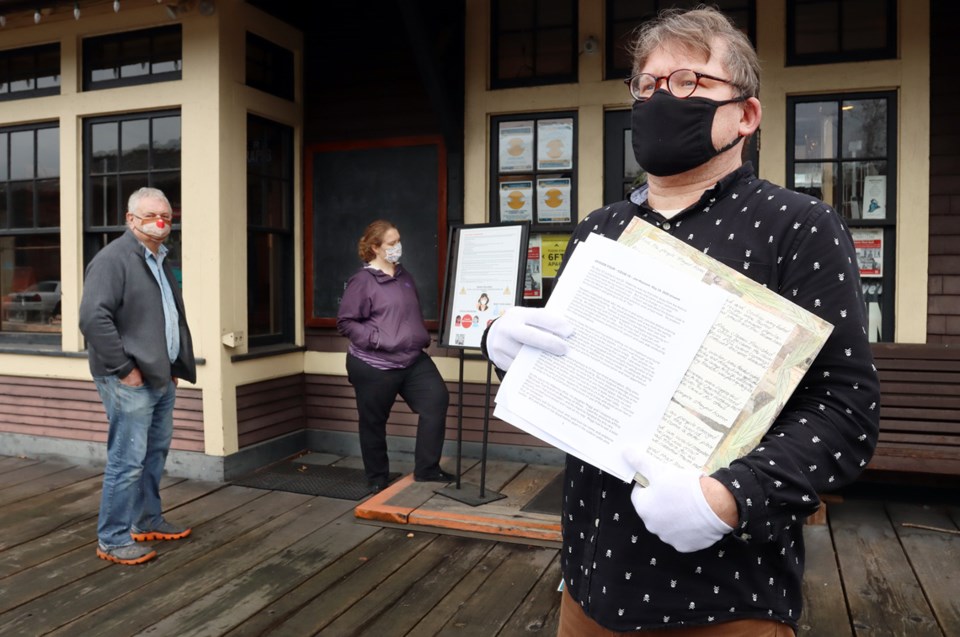When historians look back on 2020, what stories will they tell?
At Port Moody’s Station Museum, that story is a living document being written anew every day.
Since last May, the museum has been collecting the personal thoughts, poems, narratives, letters, drawings, paintings and photographs of local residents navigating the challenges of the COVID-19 pandemic.
Markus Fahrner, one of the museum’s co-ordinators, said for some, documenting their experiences through an exceptional time is cathartic. For others, it’s a way to mark their place amidst extraordinary events. But for everyone, it’s a telling of history as it happens, even at its most mundane.
Like one regular contributor of a digital journal of his life in a retirement home who shared stories like the time pillows were removed from the dining hall as hard surfaces are easier to disinfect. But they also create an echo effect, noted the author, which made it harder for residents using hearing aids to make out conversations.
Fahrner said while such an observation won’t make headlines, it makes the telling of the year just passed “more real.”
He added, “it shares our experiences on a daily basis.”
Another contributor sent along months worth of daily doodles that captured her thoughts, emotions or interpretations of the days at hand.
Fahrner said the collection gathered so far captures the resilience of the community through the pandemic’s early days and weeks, its sense of hope during the summer months and its dread as the second wave hit.
It’s a feeling, Fahrner added, that “we’re stuck in something that’s way bigger than anything we’ve experienced.”
Through it all, though, the strength of people shines through.
Fahrner said the public health crisis and its attendant impact on our daily routines has been like a handbrake on our lives. Without the constant hustle and bustle, we’re looking more inward, reflecting on our own roles in the community and in containing the pandemic.
“They’re questioning, ‘What have I done so far?’” Fahrner said.
Jim Millar, the museum’s director, said the contributions gathered will provide valuable insights to residents enduring future challenges or calamities, much as there’s lessons to be learned from the Spanish flu that sickened and killed millions around the world from 1918 to 1920.
“One of our purposes is to help people learn from the past,” he said.
Brianne Egeto, another co-ordinator at the museum, said she’s been keeping her own journal these past months. But, she figures, it might take her five years or more before she can feel enough emotional detachment from the thoughts and observations she’s recording to be able to consider them objectively.
Fahrner said as the pandemic has worn on for so many months, contributions to the project have waned.
He said after an initial flurry of creativity sparked by its uniqueness, people are wearying of the toll it’s taken on their familiar routines, the connections it’s frayed.
He suspects the next burst of energy may happen when the immunizations are currently rolling out have reached enough of the population that we can begin to breathe easier again, begin celebrating all those activities and people we’ve missed.
The Station Museum is still collecting local stories, observations, documents, photos, drawings and paintings of residents’ lives in the COVID-19 pandemic. If you’ve got something to contribute, contact them on its Facebook page or email [email protected].



